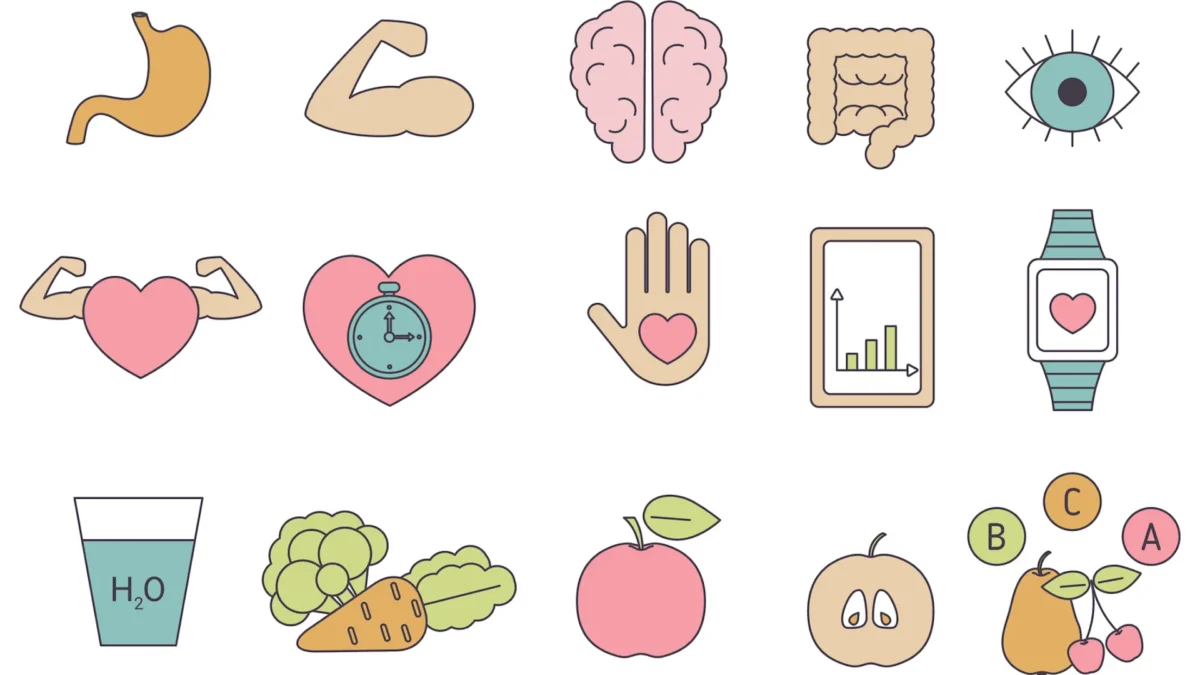Attention Deficit Hyperactivity Disorder (ADHD) affects millions of children and adults worldwide, leading to difficulties in focus, impulse control, and hyperactivity. While medication is a common treatment, many individuals and parents seek natural ADHD treatments to support cognitive function and improve daily life. But which of these alternative approaches are backed by science?
This article dives into natural ADHD treatments, exploring dietary changes, herbal supplements, and lifestyle adjustments that can enhance focus, behavior, and overall well-being.
How Diet Impacts ADHD Symptoms

The Role of Omega-3 Fatty Acids in Brain Function
Research suggests that omega-3 fatty acids, found in fish oil, flaxseeds, and walnuts, play a critical role in brain health. Studies indicate that children with ADHD often have lower levels of these essential fats, which contribute to neurotransmitter function and cognitive performance. Supplementing with omega-3s may help improve focus, reduce impulsivity, and enhance emotional regulation.
Reducing Processed Foods and Artificial Additives
Artificial colors, preservatives, and high-sugar diets have been linked to hyperactivity in some children. Studies suggest that eliminating processed foods and focusing on whole, nutrient-dense meals can lead to noticeable improvements in attention and behavior. Cutting back on refined sugars and opting for balanced meals with proteins, healthy fats, and fiber can stabilize energy levels and reduce mood swings.
The Connection Between Food Sensitivities and ADHD
Certain food sensitivities, such as gluten, dairy, and soy, may exacerbate ADHD symptoms in some individuals. An elimination diet, guided by a healthcare professional, can help identify trigger foods that may be contributing to hyperactivity or inattention. Keeping a food journal and tracking behavior changes can provide valuable insights into dietary influences on ADHD.
Herbs and Supplements for ADHD Support

Ginkgo Biloba and Brain Circulation
Ginkgo biloba, a powerful herbal remedy, has been used for centuries to enhance cognitive function and memory. Studies show that it improves blood flow to the brain, which may benefit individuals with ADHD by enhancing focus and mental clarity. When combined with other brain-supporting nutrients, ginkgo can be an effective part of a natural ADHD treatment plan.
Bacopa Monnieri for Memory and Attention
Bacopa monnieri is an adaptogenic herb traditionally used in Ayurvedic medicine to support learning, memory, and attention span. Scientific studies have found that bacopa can enhance cognitive processing speed and reduce anxiety, making it a promising natural remedy for ADHD. Regular supplementation may improve concentration and reduce impulsivity.
Zinc and Magnesium for Neurotransmitter Balance
Deficiencies in zinc and magnesium are common in individuals with ADHD. Zinc plays a role in dopamine regulation, which affects attention and motivation, while magnesium supports relaxation and stress reduction. Ensuring adequate levels of these minerals through diet or supplementation can contribute to improved focus and emotional stability.
Lifestyle Changes to Improve Focus and Behavior

The Benefits of Regular Physical Activity
Exercise is one of the most effective natural ADHD treatments for both children and adults. Physical activity increases dopamine and norepinephrine levels, which help regulate attention and impulse control. Activities like martial arts, swimming, and yoga can provide structured movement while improving self-discipline and mental clarity.
Mindfulness and Meditation for Emotional Regulation
Mindfulness practices, such as meditation and deep breathing, have been shown to improve focus and reduce impulsivity in individuals with ADHD. These techniques encourage self-awareness and help individuals manage stress more effectively. Even a few minutes of daily mindfulness exercises can lead to long-term benefits in emotional regulation and cognitive performance.
Optimizing Sleep for Better Concentration
Sleep disturbances are common in those with ADHD and can significantly impact focus and behavior. Establishing a consistent bedtime routine, reducing screen time before bed, and creating a calming sleep environment can improve overall sleep quality. Melatonin supplements or relaxation techniques may also support a healthier sleep cycle.
Managing ADHD Naturally: A Holistic Approach
Creating a Structured Daily Routine

Individuals with ADHD often struggle with organization and time management. Implementing a structured routine with visual schedules, task lists, and timers can provide the consistency needed for improved productivity. Breaking tasks into smaller steps and setting reminders can also reduce overwhelm and enhance daily functioning.
The Role of Social Support and Therapy
Cognitive Behavioral Therapy (CBT) and behavioral coaching can be valuable tools for individuals managing ADHD. These approaches help develop coping strategies, improve emotional regulation, and strengthen executive functioning skills. Additionally, support from family, teachers, and therapists can provide the encouragement needed to navigate challenges.
Limiting Screen Time and Digital Overstimulation
Excessive screen time, especially from video games and social media, can contribute to attention difficulties and hyperactivity. Setting limits on screen exposure and incorporating more outdoor activities, reading, and creative play can help balance cognitive stimulation. Encouraging tech-free time before bed also promotes better sleep and mental relaxation.
Conclusion: Finding the Right Natural ADHD Treatments
While ADHD presents unique challenges, natural approaches can offer meaningful improvements in focus, behavior, and overall well-being. Dietary changes, herbal supplements, lifestyle modifications, and structured routines all play a role in managing symptoms effectively.
Every individual responds differently, so experimenting with various natural ADHD treatments and tracking progress can help identify the most beneficial strategies. Consulting with healthcare professionals before making major changes ensures a safe and well-rounded approach to ADHD management.








